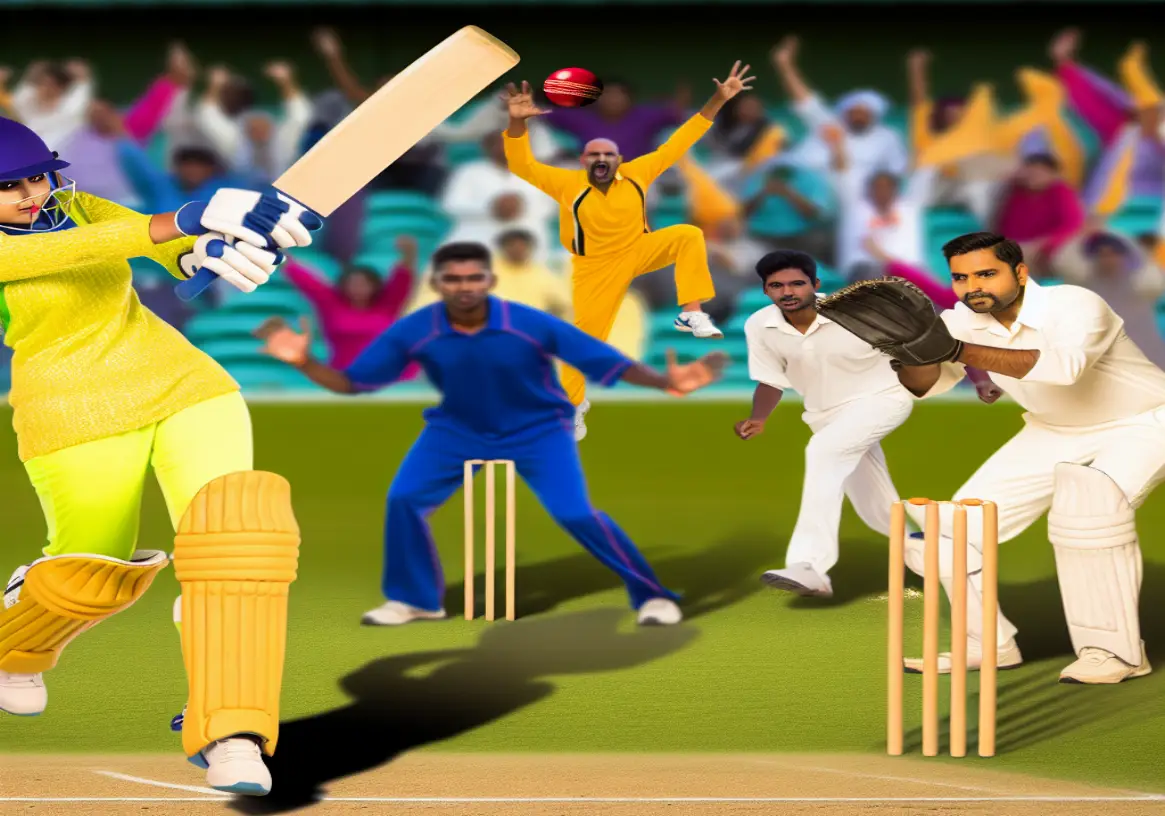Is Cricket Betting Legal in India?

Cricket betting in India is a complex and controversial topic. While some forms of betting are legal in India, such as horse racing and lottery, cricket betting falls into a legal gray area. The Public Gambling Act of 1867 prohibits most forms of gambling, but there are loopholes that allow for certain types of betting.
One of the main reasons why cricket betting is considered illegal in India is because of the potential for match-fixing and corruption. There have been several high-profile cases of players and bookies being involved in fixing matches, which has tarnished the reputation of the sport. As a result, the government has taken a strict stance against betting on cricket.
Despite the legal restrictions, cricket betting is still a thriving industry in India. Many people place bets through offshore betting sites or underground bookies. The lack of regulation in this sector means that there is a higher risk of fraud and scams, making it important for bettors to be cautious when placing bets.
In conclusion, while cricket betting is technically illegal in India, the reality is that it is still widely practiced. It is important for individuals to be aware of the risks involved and to exercise caution when participating in any form of betting, whether legal or not.
Legality of cricket betting
Cricket betting is a popular form of gambling that has gained immense popularity in recent years, especially with the rise of online betting platforms.
However, the legality of cricket betting varies from country to country, with some nations outright banning it while others have certain regulations in place to govern it.
In countries like India and the United Kingdom, cricket betting is legal and regulated by government bodies, ensuring fair play and responsible gambling practices.
On the other hand, in countries like Pakistan and Bangladesh, cricket betting is illegal and punishable by law, with strict penalties for those caught participating in such activities.
- Legal in countries like India and the United Kingdom
- Illegal in countries like Pakistan and Bangladesh
- Regulated by government bodies in some countries
- Strict penalties for those caught participating in illegal betting
Indian laws on betting
In India, betting and gambling laws are governed by the Public Gambling Act of 1867. This law prohibits the operation of any gambling house and the setting up of any betting or gambling apparatus. However, the law does not explicitly mention online betting or gambling, leaving some ambiguity in its application to online platforms.
Some states in India have their own laws on betting and gambling, with Goa and Sikkim being the most liberal in their approach. These states have legalized casinos and allow betting on certain sports and games. Other states, such as Maharashtra and Telangana, have stricter laws that prohibit all forms of betting and gambling.
Despite the legal restrictions, betting and gambling are still popular in India, especially during major sporting events like cricket matches. Many people participate in illegal betting activities through underground networks or online platforms that operate outside the country”s jurisdiction.
It is important for individuals in India to be aware of the laws and regulations surrounding betting and gambling to avoid any legal consequences. While the laws may vary by state, it is always best to err on the side of caution and refrain from participating in any illegal betting activities.
Legal betting platforms in India
In India, the legal status of betting platforms can be a bit confusing. While there are some forms of gambling that are allowed, such as state-run lotteries and horse racing, other forms of betting, like sports betting, are not explicitly legal. However, there are still many websites that offer sports betting services to Indian players.
One of the most popular forms of sports betting in India is cricket betting. While it is not technically legal, many Indians still participate in cricket betting through online platforms. To learn more about the legality of betting on a cricket match in India, you can visit this lagal sport betting.
Despite the legal gray area surrounding sports betting in India, many players still enjoy the thrill of placing bets on their favorite teams and players. With the rise of online betting platforms, it has become easier than ever for Indians to participate in sports betting from the comfort of their own homes.
While the legal landscape of betting platforms in India may be complex, it is clear that there is a strong demand for these services among Indian players. As long as players are aware of the potential risks and laws surrounding sports betting, they can continue to enjoy this popular form of entertainment.
Risks of illegal betting
Illegal betting poses several risks to both the bettor and the wider community. Firstly, there is no guarantee that winnings will be paid out when betting illegally, leaving bettors at risk of losing their money with no recourse for recovery. This lack of regulation also opens the door to potential scams and fraud, as illegal bookmakers operate outside the law and may take advantage of unsuspecting bettors.
Furthermore, illegal betting can contribute to organized crime and money laundering activities. By participating in illegal betting, individuals may unknowingly be supporting criminal organizations and contributing to illicit activities. This not only puts the bettor at risk of legal repercussions, but also has broader societal implications by fueling criminal enterprises.
Lastly, illegal betting can have negative consequences on the integrity of sports and fair competition. Match-fixing and other forms of corruption are more likely to occur in unregulated betting markets, undermining the credibility of sports events and eroding trust in the industry. By engaging in illegal betting, individuals are not only risking their own financial security, but also the integrity of the sports they love.
Future of cricket betting regulations
As the popularity of cricket betting continues to rise, there is increasing pressure on regulatory bodies to implement more stringent regulations to protect both bettors and the integrity of the sport. With the advent of online betting platforms, it has become easier for individuals to place bets on cricket matches, leading to concerns about match-fixing and corruption.
In the future, we can expect to see tighter regulations imposed on cricket betting, including age restrictions, limits on bet sizes, and enhanced monitoring of betting patterns. Regulatory bodies may also work more closely with law enforcement agencies to investigate suspicious betting activities and prosecute those involved in match-fixing. Additionally, there may be a push for greater transparency in the industry, with betting operators required to disclose information about their operations and financial transactions.
While these regulations may impose some limitations on cricket betting, they are essential to ensuring the long-term sustainability of the sport. By creating a more secure and transparent betting environment, regulatory bodies can help to protect the integrity of cricket and maintain the trust of fans and bettors alike.



